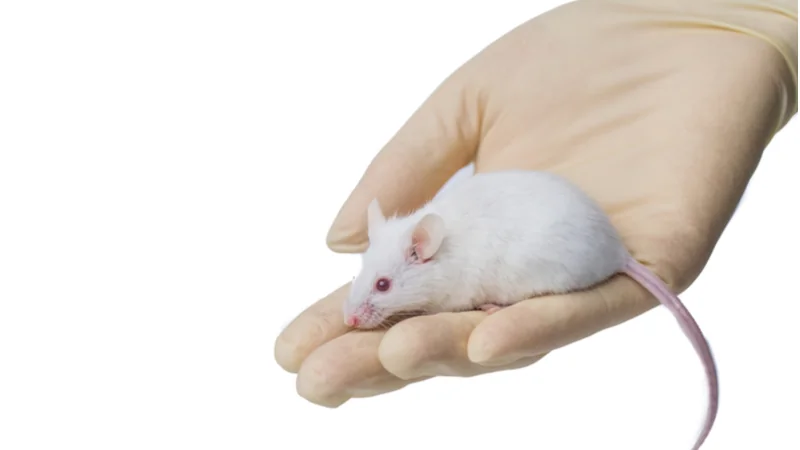Researchers publishing in Aging have found that the anti-malarial drug chloroquine increases lifespan in male NRMI mice. The NRMI, like the Black 6, is a standard breed widely used in research, and these mice were not directly genetically modified.
Substantial positive lifespan effects
We have previously reported a study showing that choloroquine increases longevity in rats, and this study’s results were similar. However, these researchers did not expect such results here: the purpose of this study was to rule out a potentially negative effect on lifespan rather than to find a positive one.
A 50 mg/kg dose of chloroquine was administered at day 500 of lifespan. While the mortality rates of the treatment and control groups began similarly, there was a long period in which the treated mice stopped dying. Slightly before 700 days after the mice were born, all of the untreated group had died while half of the treatment group was still alive; the last treated mouse died a hundred days later.
Food intake did not decrease in the treated group, although liquid intake and body weight were both slightly decreased.
Toxicity
This study showed that chloroquine can be toxic to the liver. Although the 50 mg/kg dose did not lead to significant pathological changes, the 100 mg/kg and 200/kg doses led to hydropic degeneration and even hepatocyte necrosis, the death of functional liver cells.
The heart results, as expected, also showed signs of toxicity, although the toxicity was not significant until higher doses. However, even the 50 mg/kg dose was associated with mild interstitial edema and a loss of striations, two signs of muscle damage, and these results only worsened with increasing doses.
This toxicity was accompanied by a decrease in proteostasis-related activity. The proteosome, which is responsible for recycling unwanted proteins, was significantly downregulated in the liver at 100 mg/kg and in the heart at 200 mg/kg.
Of mice and autophagy
Previous research has shown that chloroquine significantly interferes with the fundamental mechanisms behind autophagy, the process by which cells clear out unwanted components [1]. Autophagy is normally seen as a good thing, as it removes waste; however, the self-cannibalism of cells can obviously have a harmful aspect as well.
The researchers hypothesize that the lifespan results, which fly in the face of the toxicity results, are due to the modulation of autophagy, a reduction in proteostasis mechanisms, and an alteration in the way the cells process glycogen. However, these are only hypotheses; further research is needed to confirm them.
Conclusion
This study adds to a body of conflicting and contradictory research, and while it answers some questions, many others only still have hypothetical answers. Things like autophagy and even protein recycling are not always good nor bad. “The dose makes the poison” is well known in medicine, and it has been once again shown here.
This was a rodent study, and chloroquine, by itself, is unlikely to move the needle much on human longevity. However, what this study does tell us, and further studies will hopefully elucidate in detail, is that the low-level biology of cellular aging can be successfully interfered with.
There are two broader, critical questions that are downstream of this line of research. The first is the inverse of this study: whether or not autophagy-enhancing interventions that increase lifespan have downsides that can be removed to enhance their effectiveness. The second is whether or not these sorts of interventions are any more effective than basic lifestyle choices in lengthening human lifespan.
Literature
[1] Mauthe, M., Orhon, I., Rocchi, C., Zhou, X., Luhr, M., Hijlkema, K. J., … & Reggiori, F. (2018). Chloroquine inhibits autophagic flux by decreasing autophagosome-lysosome fusion. Autophagy, 14(8), 1435-1455.





